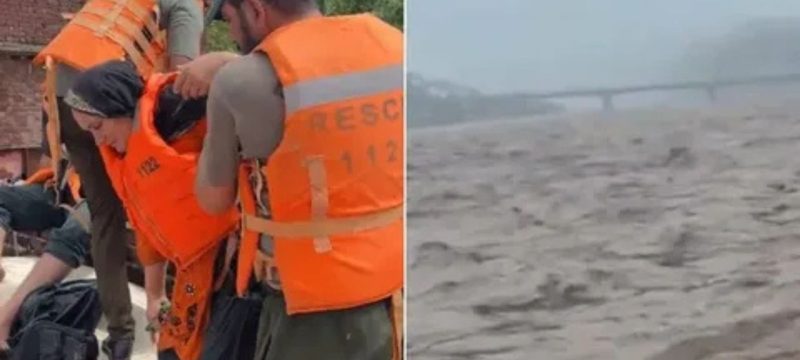Punjab has introduced thermal drone technology to rescue flood victims, marking a major step in disaster management. The cutting-edge technology is helping authorities locate stranded people during heavy rains and overflowing rivers, ensuring rapid evacuation in areas hit hardest by the floods.
The provincial government confirmed that drone-assisted operations are already underway in several districts. Equipped with thermal imaging, the drones can identify people trapped on rooftops, in fields, or in submerged areas, even during the night. This has significantly improved the speed and accuracy of rescue efforts.
Thermal drone technology to rescue flood victims
Rescue officials stated that thousands of residents have already been shifted to safer places through these operations. The initiative also reflects Punjab’s growing reliance on technology to handle natural disasters, which are becoming more frequent due to climate change.
Authorities shared that the drones are being used along with traditional methods such as boats and ground rescue teams. Together, these efforts are saving lives and minimizing risks faced by emergency workers.
Key details from the rescue operations include:
- More than 10,000 people were evacuated from vulnerable areas.
- Thermal drones are scanning rivers and submerged villages around the clock.
- Rescue boats are deployed in flood-prone districts for immediate response.
- Medical camps and shelters were established for displaced families.
- Army and Rescue 1122 teams are assisting alongside local authorities.
Officials also stressed the importance of public cooperation, urging residents not to ignore early warnings and to immediately move to designated safe zones. They further highlighted that such technology will continue to play a crucial role as flood threats increase with each passing monsoon season.
The initiative has gained wide attention, with experts noting that modern tools can significantly reduce casualties during natural disasters. The approach also aligns with global practices where drones are increasingly used for disaster response.
Meanwhile, media reports confirm that mass evacuations in Punjab are ongoing as rivers threaten nearby cities. Officials remain on high alert, and rescue teams are prepared for further emergencies if rainfall continues.
By combining technology with community resilience, Punjab hopes to turn a tragic crisis into an opportunity to build stronger disaster management systems for the future.







